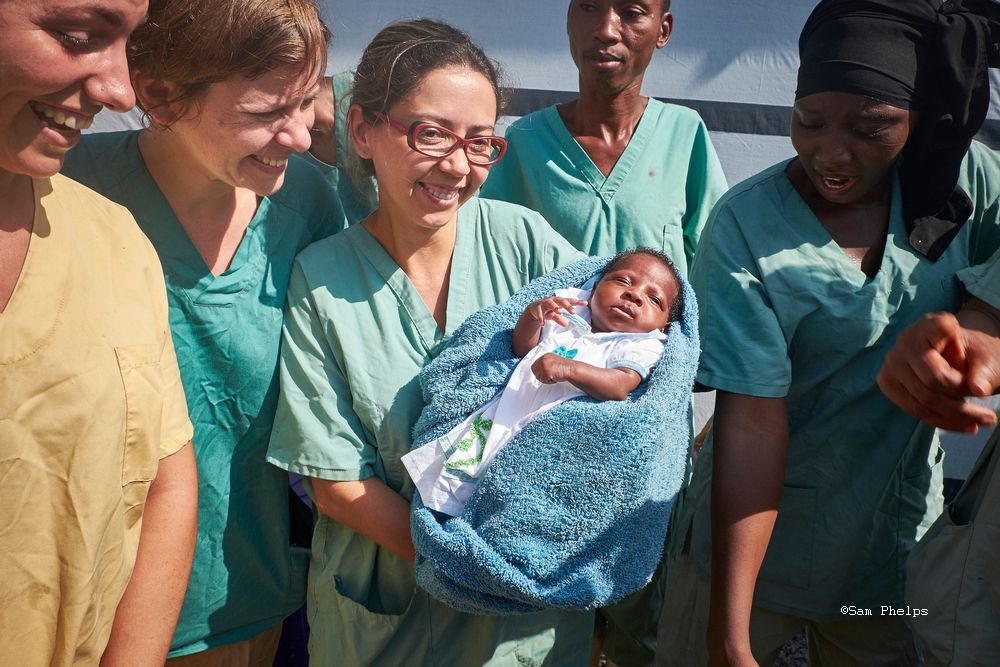Pediatric infectious diseases specialist Anita McElroy was a co-author on a case report on the first newborn to survive Ebola infection, published recently in Journal of Infectious Diseases.
“Of all the work I’ve been privileged to be involved in over the past few years, this paper was one of the most personally satisfying,” McElroy writes.
The child described in the paper is named Nubia; she is mentioned in several news stories from 2015. She was the last known Ebola case in Guinea, one of three African countries hit hard by the virus in 2014 and 2015. Her mother died shortly after her birth.

Nubia leaves hospital in Guinea. Photo from Medecins Sans Frontieres.
Nubia was cared for at the Ebola treatment ward run by Medecins Sans Frontieres (MSF, aka Doctors without Borders) in Conakry, Guinea. She was given three experimental therapies: ZMapp antibodies, survivor white blood cell transfusion and an antiviral drug called GS-5734. It is not clear which of these interventions were critical for Nubia’s recovery, although the paper makes clear that ZMapp did not result in viral suppression all by itself.
McElroy is a go-to person for studies of dangerous viruses such as Ebola, Lassa and Zika, partly because of her affiliation with the Centers for Disease Control and Prevention’s Viral Special Pathogens Branch. She advised the MSF team on the use of the antiviral drug and other interventions.




